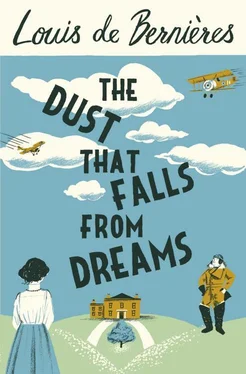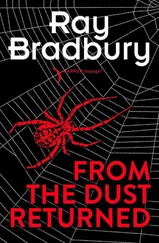Much as the people had loved their tiny Queen, there had been something dull about all that respectability, and the grief and stupefaction that had engulfed her subjects was tempered by the anticipation of something that might be more entertaining. The new King was a bon viveur. He loved France rather than Germany. He consorted with actresses. For the last ten years, in any case, the Victorian age had already been slipping away. Fast girls smoked, and wore the most shocking bloomers when they went out on their bicycles. Businesswomen of dubious morality were getting jobs in the City. Saddlers who specialised in side-saddles found their orders drying up. Crowds filled the music halls to hear smutty songs rendered by cheeky chappies and saucy doxies.
The new King, kept strictly in the dark about state matters during his mother’s reign, grew impatient with precedent and forged a new path. He upset everyone at court. He gave the right to organise his coronation to the Catholic Duke of Norfolk and not to the Anglican Lord Chamberlain. There was a long and bitter dispute about whether the Lords should be robed, and the decision was changed four times. He sent Lord Carrington, a notorious liberal, as his personal envoy to France, Spain and Portugal. This was the same Lord Carrington who had once, as one of a panel of magistrates that had tried him, scandalously paid the fine of a newly released convict, caught sleeping rough when he had not been able to walk to High Wycombe before darkness fell. The alternative had been several more months in prison, and Carrington had resigned from the bench immediately afterwards, saying that if this was justice he wanted nothing more to do with it.
The King dragged Lord Wolsey from retirement, and sent him abroad, with sashes and medals to present to foreign potentates, even the Shah of Iran, who thereby became the first Muslim to become a member of the Christian Order of the Garter. He cleared out his mother’s immense accumulation of bric-a-brac, updated his plumbing, filled his court with men who were interesting rather than important, and with women who were both interesting and beautiful.
In Court Road, Eltham, on 9 August 1902, Mr and Mrs Hamilton McCosh held a coronation party, postponed from June. It was to be a kind of elaborate high tea. They borrowed long trestles from several firms of wallpaperers, covered them with beautiful damask cloths, and, at greatly inflated prices, hired enough plain china plates and silver-plated cutlery to see them through the day. The servants set up two long tables in the garden, to accommodate the buffet, and laid out rugs all over the lawn and in the orchard in order to create a grand déjeuner sur l’herbe . Chairs were brought out of the house for the elderly or stiff of limb. From the kitchen there appeared plates of ham and tongue, elaborate salads in the French style, Normandy cheeses, and fabulous heaps of fresh Kentish strawberries and Devon cream. For the children there was lemonade, and for the adults jugs of potent fruit cup with sprigs of mint floating on the surface. Chilled champagne would be brought out in time for a toast to the King after Mr McCosh had made his speech.
This was the beginning of the age when riches would finally come to count as much as rank. Court Road consisted of very large detached houses with substantial gardens at the rear. Most had two gateways connected by a small semicircular driveway out in the front so that carriages could arrive and leave without any awkward manoeuvring. The McCosh entrance and exit had impressive brick pillars with THE GRAMPIANS set into them in Portland stone. Between them ran a low wall, just the right height for children to walk along. Mr McCosh had planted a small walnut tree just behind it, because he loved the way the leaves turned yellow in autumn, and was convinced that walnut was the hardwood of the future, without thought to the possibility that long after his death the tree’s roots would topple the pillars and wall altogether, so that by the end of the century there would be no memory of the house ever having had a name at all.
Inside were large rooms with high ceilings and small coal fires. On the top floor were crudely furnished rooms with washstands for the servants, but on the floor below that there was a proper bathroom with a real lion-footed cast-iron bath that gave hot water from a boiler house attached to the side of the kitchen. In this boiler house was often to be found the boilerman, dozing in the warmth, or rolling cigarettes, and occasionally getting up to shovel in a new dose of coal. His was a life of bucolic idleness, disrupted only by the occasional breakdown of the whole system, which worked on the thermosyphon principle, without any need of a pump at all.
In general one could gauge the success of the householders of Court Road by the elaborateness of their cornices. Mr McCosh was an intelligent, charming, humane, ambitious, hard-working man with an eye to anything whatsoever that might turn a profit, and The Grampians had by far the most elaborate, extensive and delicate cornices of any house in Court Road. His chief weakness, which he was able to turn to profit even so, was an addiction to golf. He was often to be found playing rounds at the Blackheath when he was supposed to be in his London office.
One disadvantage of his speculations was that he might veer from fabulous riches to abject penury in the blink of an eye. He was accustomed to avoiding paying bills until such time as he recouped his wealth. This he always did, but it remained a sore point to the local tradesmen, who never knew when it was wise to accept his custom or decline it. Their one consolation was that he scrupulously calculated the interest on any debt he owed, and paid it in full.
On 9 August 1902 Mr Hamilton McCosh had plenty of money, it seemed unlikely that it was going to rain, and he was rejoicing in the pleasure of his own largesse.
By his side, frequently departing from it in order to direct the servants, stood his wife. Mrs McCosh had been a great beauty in her youth, and was to retain her comeliness into old age. She was seven years senior to her husband, and had married late owing to a long previous engagement to a milord who subsequently turned out to have had a wife already, locked up in an asylum in New York. It had taken her many years to recover from the mortification of the scandal having become public and being written up in the press, and she had virtually gone into seclusion until the gallant and impervious Hamilton McCosh had hauled her out of it. She had caused much gossip by playing tennis vigorously when pregnant, and was notorious for her outspoken belief that women should vote equally with men. She had become a warrior in what was being called ‘the Sex War’. However, her husband would explain that this was because she wanted the right to vote Conservative. She had recently taken up cycling and was still somewhat bruised about the thighs after losing a wheel during a tour of Hayling Island.
Mrs McCosh’s great weakness was for the royal family. She followed their doings avidly, and subscribed to The Times only to peruse the Court Circular. The coronation party was her idea, even though most of the nation had already feasted a month before, when the King had donated £30,000 to the poor of London, and 456,000 people had eaten and drunk at his expense. The King himself, recovering in bed from an operation, had sent his regrets to each Lord Mayor, and the Prince and Princess of Wales had made up for his absence by visiting twenty of the dinner parties in succession. It had all felt like a wonderful new start.
Mrs McCosh was looking forward to the coronation party, but also wondered if she could bear to see it through, because she was still in deep mourning for the Queen, and had only this very day given up wearing black. She was not at all sure that she approved of the new King, who kept racehorses and had dismissed many of the old Queen’s retainers.
Читать дальше












